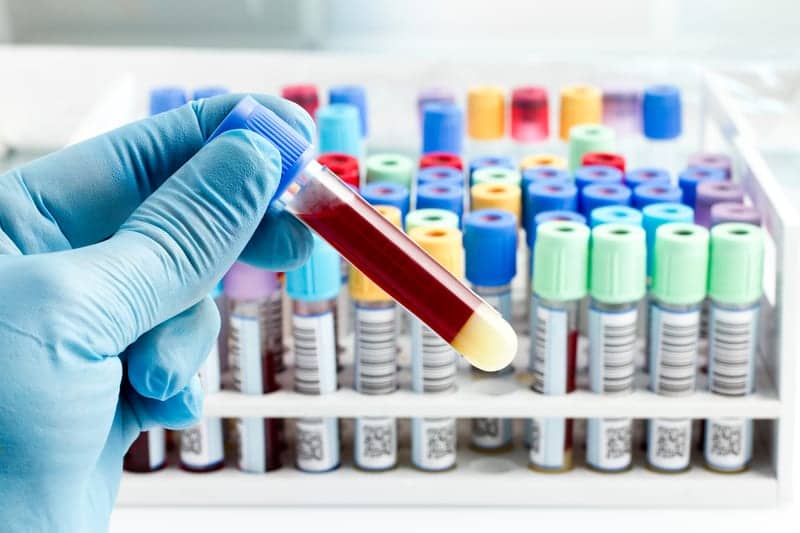New modeling studies and expert consensus have shed new light on the promise and peril of liquid biopsies for colorectal cancer (CRC) screening that are currently in development.
“Based on their current characteristics, blood tests should not be recommended to replace established colorectal cancer screening tests, since blood tests are neither as effective or cost-effective, and would worsen outcomes,” says David Lieberman, MD, chair, AGA CRC Workshop chair and lead author of an expert commentary on liquid biopsy for colorectal cancer screening.
Liquid Biopsies for Colorectal Cancer Screening
An AGA expert panel employed previously validated decision models to estimate the effects of a new blood-based colorectal cancer screening test on an average-risk population aged 45-75, assuming the test met minimal Centers for Medicare and Medicaid Services (CMS) criteria for CRC sensitivity (74%) and specificity (90%). The aim was to define properties of successful CRC screening blood test and compare possible outcomes with the established strategies of annual fecal immunochemical tests (FIT), triennial multitarget stool DNA (MT-sDNA) tests (Cologuard) and every-10-year colonoscopies.
Key conclusions in the expert commentary, published in Clinical Gastroenterology and Hepatology:
- A blood test for CRC that meets minimal CMS criteria for sensitivity and performed every three years would likely result in better outcomes than no screening.
- A blood test for CRC offers a simple process that could encourage more people to participate in screening. Patients who may have declined colonoscopy should understand the need for a colonoscopy if findings are abnormal.
- Because blood tests for CRC are predicted to be less effective and more costly than currently established screening programs, they cannot be recommended to replace established effective screening methods.
- Although blood tests would improve outcomes in currently unscreened people, substituting blood tests for a currently effective test would worsen patient outcomes and increase cost.
- Potential benchmarks that industry might use to assess an effective blood test for CRC going forward would be sensitivity for stage I-III CRC of >90%, with sensitivity for advanced adenomas of > 40-50%.
“Unless we have the expectation of high sensitivity and specificity, blood-based colorectal cancer tests could lead to false positive and false negative results, which are both bad for patient outcomes,” says John Carethers, MD, AGAF, AGA past president and vice chancellor for health sciences at the University of California San Diego.
Further reading: How At-Home Colorectal Cancer Screenings Pose Challenges
An expert panel convened in September 2023 for the AGA CRC Workshop and considered modeling performed by two independent groups, including a team from the Cancer Intervention and Surveillance Modeling Network (CISNET) Colorectal Cancer consortium and a team from Stanford University.





